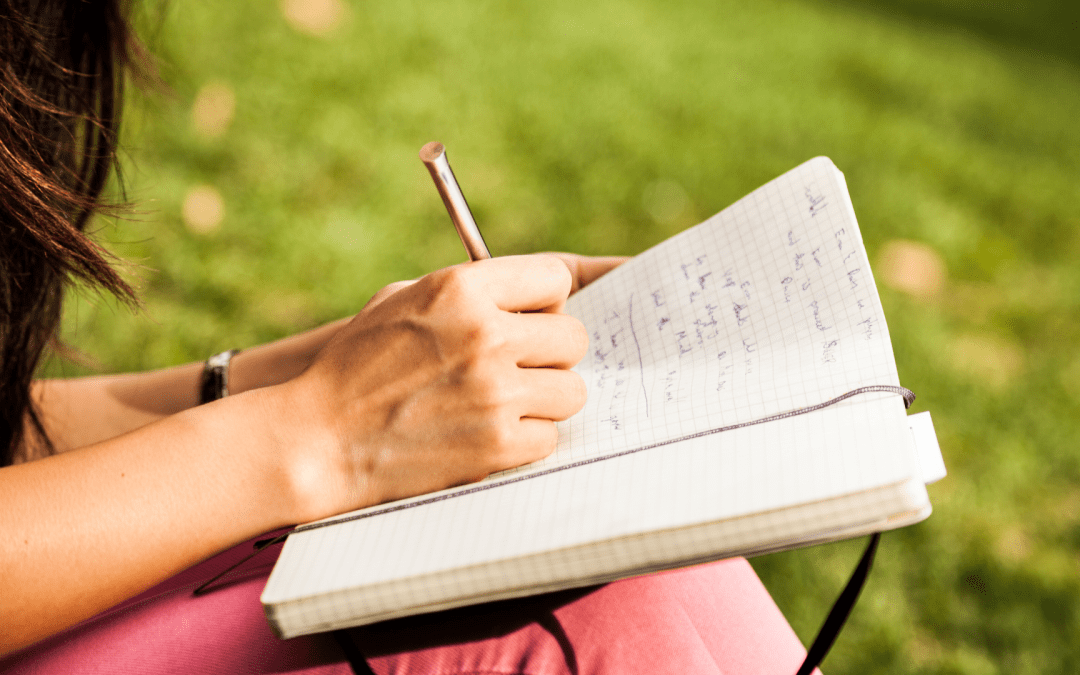Heard all the buzz about journaling? Perhaps, you’ve started and stopped? How do you journal and really feel the benefits?
Want to know the answers? Then this is the blog for you.
Let’s start our journaling here, with beginner’s mind, that delicious space of curiosity and surprise. As you read, have a journal and pen ready.
Journaling Matters
Journaling is that free, spontaneous writing, unplanned, that tumbles onto the page. We don’t edit, stop to ponder the best word. We keep going, catching words and more words that emerge in the rhythm of pen across page.
Journaling doesn’t need a lot of time – 5-10 minutes will bring the benefits. It doesn’t have to be every day. Small and consistent. You’ll find your rhythm.
Journaling matters, especially by hand, because it’s an act of self-care. It’s an act of grounding yourself from buzzy, busy brain. As you write what’s worrying you onto the page, this inside out is cathartic, diminishing the negative grip those emotions and stresses have.
Journaling matters because it helps you understand better what you’re thinking. We journal to find out what we’re thinking! Knowing what precisely is troubling us, is the first step to gaining clarity.
Journaling matters because it helps us shift our thinking. By pausing from busy to slow, noisy to quiet, we see things anew, and on the page, we may dance into a change of perspective. Ahhh, that shift shifts the heaviness too.
Journaling matters because there’s always something to learn, some insight to gleam. New ideas, new ways forward, journaling through something helps us feel more optimistic, feel a greater sense of control over those challenges close by.
Journaling matters because it is also a way to build a better sense of yourself, including your professional self. Journaling is dialoguing with yourself. Out tiptoes your quiet inner voice, or the one tucked away for some reason or other. Get to know yourself, again, and do the work you love from that renewed connection.
Words Matter
Let’s start with the word journaling.
Someone recently tutted and said Journaling, yuck! Sounds teenage and angsty.
Exercise # 1 Journaling is…
Write what journaling is for you. An inviting, appealing way that draws you in. Go wild, definitely not a dictionary definition!
Bring in your professional interests to flavour it, wrap it to entice you and your interests.
My example as coach | writer
Journaling is like coaching myself, writing myself clear and free.
Journaling brings out those half-buried ideas, my brave voice, like a gold finch, top branch, early morning song. From first croaks to golden melodies. Best start.
Mindset Matters
It’s about how you arrive to journaling. What’s the mindset that you turn up to your journal with? Here’s some guidance to get into a journaling frame of mind.
Nook and Time
Sit where’s comfy, away from a work desk. A nice view outside or inside. That special corner where you feel more like you.
Is it first thing in the morning or last thing at night? Is it five minutes at lunch or a new ritual for the close of your working day? Find the time where you feel more ready for discovery.
Time constraint helps. 5- or 10-minutes journaling can work. Sounds doable, right?
Beginner’s mind
Come to your journal with a curious, open mind. What wants to come out will come out. Don’t force. In the silence, your comfy spot, thoughts rise you didn’t know were there. Your pen’s ready to catch them.
Trust something useful comes out
It might not be in the first minute or so, but one sentence leads to another and the thing you’ve not known was there, is there. Even your choice of words can surprise. Didn’t know you saw the situation like that? There’s an opening.
Write-Reflect-Act is a great way to harness the wisdom that fell onto the page today. Glimpse at what you wrote and pick 3 words that feel alive, significant in some way. See if there’s a step to take in your words: a conversation to open, a decision to make, an opening somehow.
Lay down the mask
Honesty matters. It’s your journal, for your eyes only so this is a place to discover what’s worrying you, connecting some dots, wanting to understand and work through.
Self-care
Journaling connects you to yourself deeply and quickly. Be mindful if this is where you want to go right now. If not, leave for a more suitable time. Perhaps, seek a friend or colleague you may prefer to chat it through with.
Guidance Six – Self-Compassion
We’ve heard of the inner critic, forever criticising, dismissing our talents as luck. Journal with self-compassion – actively turn the lens towards how you’re managing despite, what’s helping, what’s enjoyable, what you’re proud of and what positive words people have offered you this week. Journaling builds self-compassion and self-appreciation.
Exercise #2 My Journaling Mindset
Write yourself some guidance for journaling. Where’s your comfy spot? Best time? Favourite cushion? What’s around that will get you feeling ready?
Simple Tools Matter
The simplest tools work best… a notebook that you are not afraid of writing messy in. Fancy journals, I’ve found, get kept in the drawer!
Exercise # 3 My kind of journal
Write what kind of a journal might work best for you. What’s on the cover? What’s inside? Give it a name other than journal:
Stilling and Stirring Matter
Are there any activities that stimulate your urge to journal?
Those activities that put you in relaxed mode, a being-with-yourself mode. A quiet library, walking a busy street, a buzzy café, a concert, alone in nature or washing dishes?
Exercise # 4 Activities to still and stir
Write a list of your stilling and stirring activities, or possible ones:
Catching Sparks Matter
Finding those sparks, from things that catch your eye to words that resonate, are made-for-you journal prompts. This is your inner self already speaking to you on matters that matter!
Catch those lines from a song, lines in a film, lines from a poem or quote on Insta. Perhaps an image in a story, an overheard conversation or signs on the street. Tune in and tune in!
Create a journaling jar, digital or real, stuffed with your ready, homegrown journaling prompts.
Read my next blog on easy journaling techniques from lists, maps, letters, images and more.

Monday mornings – Early Bird journaling
Friday afternoons – End the Week Write https://www.eventbrite.co.uk/e/end-the-week-well-journaling-tickets-620061068347
Insta: nickytorode

